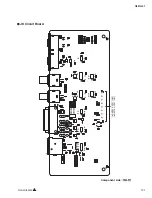
226
•
The private key is compromised.
•
The association between the subject and CA is changed. For example, when an employee
terminates employment with an organization.
CA policy
A CA policy is a set of criteria that a CA follows to process certificate requests, to issue and revoke
certificates, and to publish CRLs. Typically, a CA advertises its policy in a certification practice
statement (CPS). You can obtain a CA policy through out-of-band means such as phone, disk, and
email. Make sure you understand the CA policy before you select a trusted CA for certificate request
because different CAs might use different policies.
PKI architecture
A PKI system consists of PKI entities, CAs, RAs and a certificate/CRL repository, as shown in
Figure 77 PKI architecture
•
PKI
entity
—An end user using PKI certificates. The PKI entity can be an operator, an
organization, a device like a router or a switch, or a process running on a computer. PKI entities
use SCEP to communicate with the CA or RA.
•
CA
—Certification authority that grants and manages certificates. A CA issues certificates,
defines the certificate validity periods, and revokes certificates by publishing CRLs.
•
RA
—Registration authority, which offloads the CA by processing enrollment requests. The RA
accepts certificate requests, verifies user identity, and determines whether to ask the CA to
issue certificates.
The RA is optional in a PKI system. In cases when the CA operates over a wide geographical
area or when there is security concern over exposing the CA to direct network access, it is
advisable to delegate some of the tasks to an RA and leave the CA to concentrate on its primary
tasks of signing certificates and CRLs.
•
Certificate/CRL
repository
—A certificate distribution point that stores certificates and CRLs,
and distributes these certificates and CRLs to PKI entities. It also provides the query function. A
PKI repository can be a directory server using the LDAP or HTTP protocol, of which LDAP is
commonly used.
PKI operation
The following workflow describes how a PKI entity requests a local certificate from a CA that has
RAs:
















































